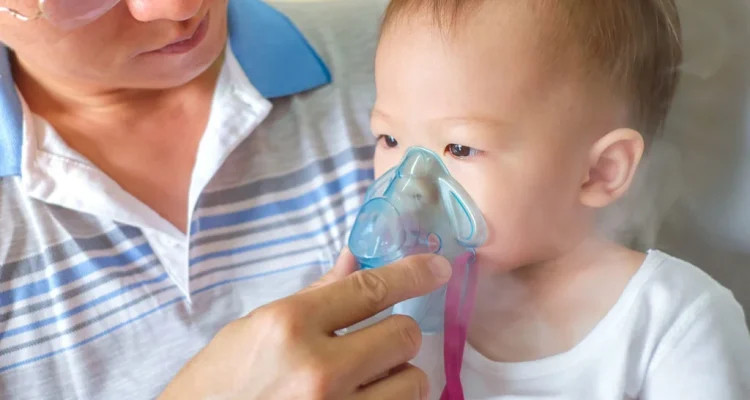Childhood respiratory issues, such as asthma, bronchitis, and common colds, can be distressing for both children and parents. While medical treatment is essential for managing severe conditions, home remedies can provide relief and support the healing process. Here are some unique and effective home remedies to help your child breathe easier.

1. Ginger and Honey Elixir
- Why it works: Ginger has anti-inflammatory and antioxidant properties that can help reduce inflammation in the respiratory tract, while honey soothes the throat and has antimicrobial properties.
- How to use: Grate a small piece of fresh ginger and mix it with a teaspoon of honey. Give this mixture to your child twice a day. You can also brew ginger tea and sweeten it with honey for a warm, soothing drink.
2. Mullein Tea
- Why it works: Mullein is an herb known for its ability to clear mucus from the lungs and soothe irritated respiratory tissues.
- How to use: Steep a teaspoon of dried mullein leaves in hot water for 10-15 minutes. Strain and let it cool before giving it to your child to drink. This tea can be given twice daily to help with breathing issues.
3. Mustard Oil Chest Rub
- Why it works: Mustard oil, when used as a chest rub, can help improve blood circulation and provide warmth, which can alleviate congestion.
- How to use: Heat a tablespoon of mustard oil with a few cloves of crushed garlic until the garlic turns brown. Strain the oil and let it cool slightly. Before putting your child to bed, gently massage this oil into their back and chest. Ensure the oil is not too hot to avoid burns.
4. Onion and Garlic Syrup
- Why it works: Both onion and garlic have natural antimicrobial and anti-inflammatory properties that can help clear respiratory infections.
- How to use: Finely chop an onion and a few garlic cloves, and mix them with honey. Let the mixture sit overnight. Give your youngster a teaspoon of the syrup three times a day starting the following day. You can keep the syrup for up to a week in the refrigerator.
5. Steam Inhalation with Eucalyptus Oil
- Why it works: Eucalyptus oil has decongestant and anti-inflammatory properties, making it effective for clearing nasal passages and easing breathing.
- Use: Fill a basin with hot water and add a few drops of eucalyptus oil. Have your child lean over the bowl with a towel draped over their head to inhale the steam. Ensure they do this for 5-10 minutes, but be cautious with the hot water to prevent burns.
6. Turmeric Milk
- Why it works: Turmeric has powerful anti-inflammatory and antioxidant properties that can help reduce respiratory tract inflammation.
- How to use: Mix a teaspoon of turmeric powder in a glass of warm milk (dairy or plant-based) and give it to your child before bedtime. Adding a bit of honey can enhance the taste and benefits.
7. Ajwain (Carom Seeds) Fomentation
- Why it works: Ajwain seeds have anti-inflammatory and bronchodilatory properties that can help relieve respiratory congestion and improve breathing.
- How to use: Heat a handful of ajwain seeds in a pan until they start to crackle. Wrap them in a clean cloth to make a small pouch. Apply this warm pouch to your child’s chest and back for relief from congestion and respiratory discomfort.
8. Licorice Root Tea
- Why it works: Licorice root has natural expectorant and soothing properties that can help clear mucus and ease coughing.
- How to use: Steep a teaspoon of dried licorice root in hot water for 10 minutes. Before serving the tea to your child, strain and allow it to cool. This can be given twice daily to help with respiratory issues.
9. Peppermint and Thyme Steam
- Why it works: Both peppermint and thyme have antimicrobial and decongestant properties that can help clear nasal passages and ease breathing.
- How to use: Add a few drops of peppermint oil and a teaspoon of dried thyme to a bowl of hot water. Have your child inhale the steam for 5-10 minutes, covering their head with a towel to trap the steam. Be careful not to use too hot water to avoid burns.
10. Oregano Oil

- Why it works: Oregano oil has strong antimicrobial properties that can help fight respiratory infections and reduce inflammation.
- Use one teaspoon of carrier oil, such as coconut or olive oil, with one drop of oregano oil. Apply this mixture to your child’s chest and back, or add it to a diffuser for inhalation. Ensure the concentration is appropriate for children and consult with a healthcare provider before use.
Conclusion
These unique home remedies offer natural and gentle ways to help manage childhood respiratory issues. While they can provide significant relief, they should be used in conjunction with professional medical advice and treatment. Always consult with a healthcare provider before introducing any new remedy to ensure it’s safe and suitable for your child. By incorporating these innovative remedies, you can help your child breathe easier and enjoy a healthier life.